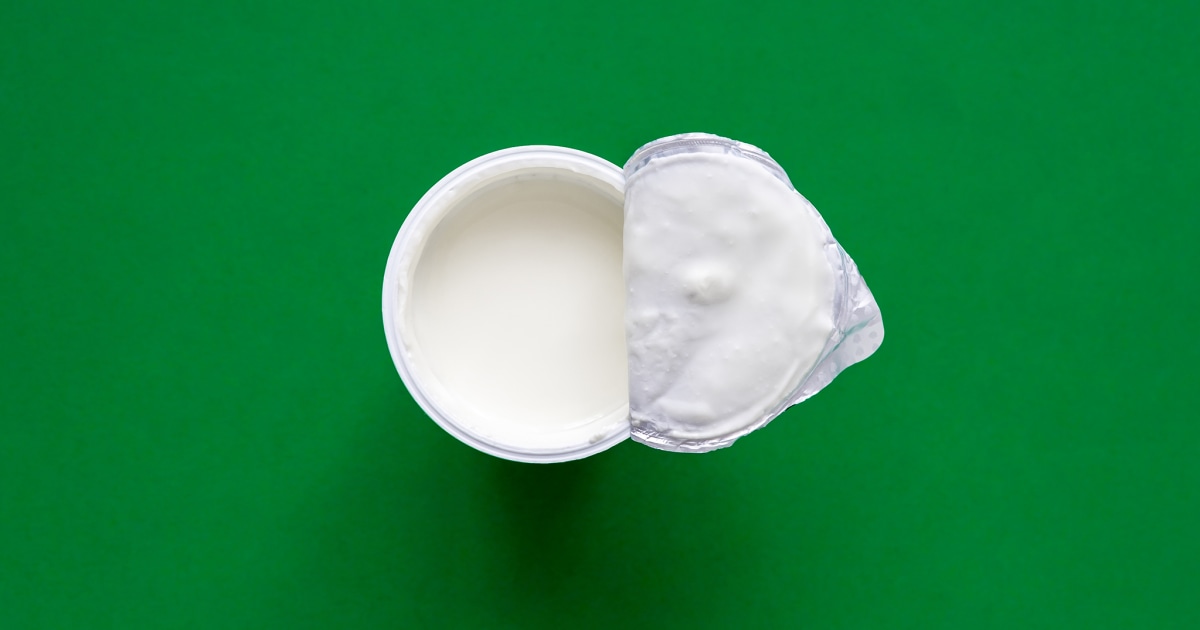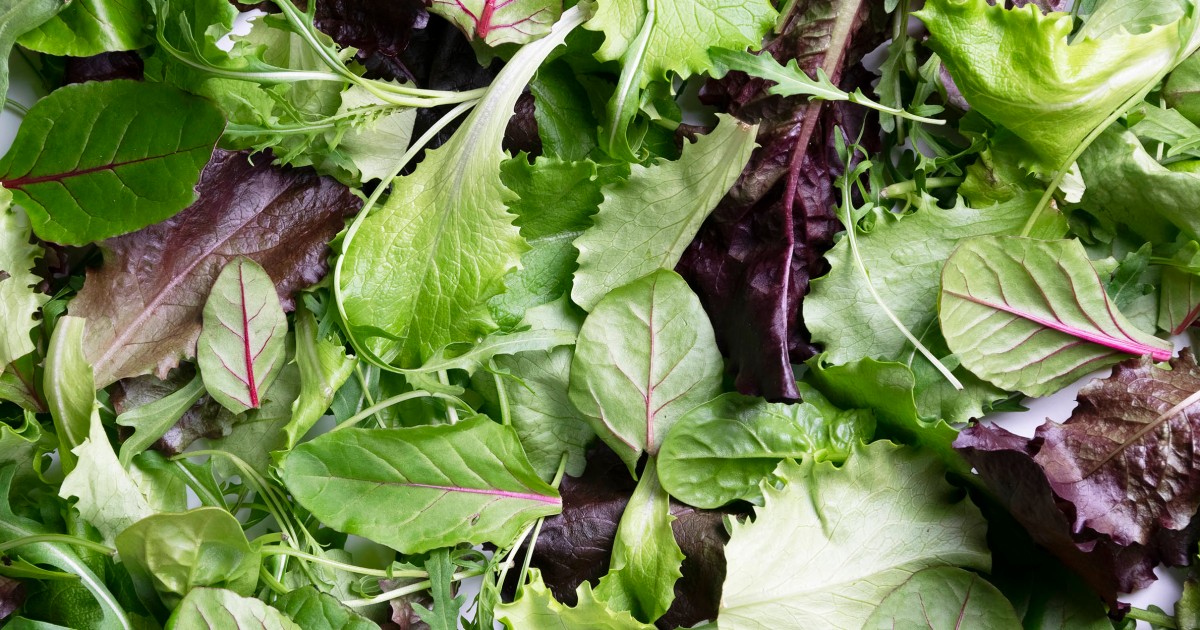Yogurt is one of your best breakfast options. It’s delicious, creamy and delightfully tangy. And, if you choose the healthiest kind of yogurt, it will provide filling protein and probiotics — without a ton of added sugar.
Dietitians have a lot of good reasons to love yogurt. “It’s a lovely food and it offers a number of health benefits,” Caroline Susie, a registered dietitian based in Dallas, tells TODAY.com.
One of the most well known health benefits of yogurt is that it can contain probiotics. “There’s a lot of research suggesting that yogurt can improve your gut health by increasing the good-for-you bacteria (in your gut),” explains Susie, a spokesperson for the Academy of Nutrition and Dietetics.
Yogurt can provide other benefits, too: Eating yogurt is also associated with lower blood pressure, Susie says. Some types of yogurt provide an even heftier amount of protein and heart-healthy fats than others, which can help you feel fuller for longer and energize you at the beginning of the day.
Therefore, high-protein yogurts may “help people (who are) managing their weight,” Susie says.
“Yogurt is also a good source of other micronutrients, especially calcium and vitamin D,” Whitney Linsenmeyer, Ph.D., assistant professor at Saint Louis University and spokesperson for the Academy of Nutrition and Dietetics, tells TODAY.com.
Packed with protein and essential nutrients, yogurt can support gut health, heart health and weight management, and it will help keep your bones strong and muscles moving.
But what’s the healthiest type of yogurt? While all yogurt provides some benefits, some kinds come out on top, according to dietitians.
What makes yogurt healthy?
Walking down the dairy aisle can be “like a geography lesson” when looking at yogurt, Susie says. And your first step should be looking at the nutrition label, she adds.
All yogurt will provide some nutrient benefits, like calcium and vitamins. But some types of yogurt may be surprisingly low on filling protein — or surprisingly high in unnecessary added sugar.
Minimal added sugar
Your first step should be to check the yogurt’s nutrition label for added sugar, Linsenmeyer advises. Added sugars can be “just sneaky,” Susie agrees.
The American Heart Association recommends minimizing the amount of added sugar you eat in a day. For women, the limit should be 25 grams of added sugar and men should eat no more than 36 grams, the AHA says. But a single serving of yogurt can easily contain a dozen grams of added sugar or more, Linsenmeyer explains, which is already about half of a woman’s daily limit.
Flavored and sweetened yogurts are particularly likely to contain a lot of added sugar. “It can add up real fast when you’re looking at flavored yogurt,” Susie says.
Some yogurts also contain artificial sweeteners, which can be an important tool for people who need to monitor their blood sugar. But be aware that consuming too many of these sweeteners, particularly sugar alcohols, can cause some “gastric distress,” as Susie puts it.
For all of these reasons, Linsenmeyer generally sticks with plain yogurt to make the choice as easy as possible. But some major brands do sell flavored yogurt without added sugar, Susie says. Both experts encourage consumers to simply check the label.
High in protein
Once you’ve taken the yogurt’s sugar content into account, take a look at how much protein it provides.
“Yogurt is mostly made up of milk that’s been fermented, so it’s going to provide a good, complete protein,” Linsenmeyer explains. That means the protein in yogurt contains all the essential amino acids that we need.
Regular yogurt contains about 5 grams of protein per serving. But some types of yogurt, such as Greek yogurt, naturally contain more protein — sometimes even double or more the amount of protein in regular yogurt.
Greek and Icelandic yogurt varieties are strained to remove more of the liquid. “It just becomes more concentrated,” Linsenmeyer says, “so it has all the same benefits of traditional yogurt, it just has that higher protein content.”
Fat content that works for you
The last nutrient to look at is the fat in your yogurt. You’ll likely be able to choose from nonfat, low-fat or full-fat varieties. While some people may need to opt for yogurts with less fat, generally, this choice is going to come down your personal preferences, the experts say.
The fat that’s in dairy is saturated fat, Linsenmeyer explains, “and we know that we should be limiting our overall saturated fat intake.” People with cardiovascular issues are likely paying especially close attention to that, she says, and may want to go with low-fat or nonfat yogurt for that reason. (As TODAY.com explained previously, the evidence for possible heart-health benefits of consuming reduced-fat dairy rather than full-fat dairy is mixed.)
However, there are some benefits to having a higher fat content in your yogurt. First, we need the fat in yogurt to help our bodies absorb the fat-soluble vitamins also found in yogurt, such as vitamins D and A, Linsenmeyer says.
Yogurt with a higher fat content will also have a thicker texture (which you may or may not enjoy) and it will aid in satiety, meaning it will keep you feeling full for longer. Fat is “really one of those key nutrients that tells our brain that we’ve had a meal and we’re feeling full,” Linsenmeyer explains.
“I like a creamier consistency, so I usually opt for 2% to 4% milk-fat yogurts,” Susie says, adding that she feels like it “sticks to my ribs a little bit longer.”
When choosing a healthy yogurt, look for:
- Minimal added sugar. Susie recommends no more than 10 grams, but less is always better.
- A good amount of protein, at least 5 grams, Susie says.
- Fat content that makes sense with your goals and preferences.
What’s the healthiest yogurt you can buy?
Greek yogurt
Food and health experts really do love Greek yogurt.
In fact, when TODAY.com asked 17 health professionals for their favorite breakfasts, many of the neurologists, oncologists and dentists we spoke to said they eat Greek yogurt regularly.
“It’s thick and it’s creamy because it’s been strained to remove the (liquid) whey,” Susie says. It’s also packed with filling protein. “Most Greek yogurts have about twice the protein as regular yogurt,” she says.
When choosing a yogurt to call the healthiest, Linsenmeyer says “anything unsweetened” would be a top contender. And, with its extra protein punch, “Greek yogurt is going to take the gold medal.”
Icelandic yogurt
Like Greek yogurt, Icelandic yogurt is strained, which gives it a thicker texture and higher protein content than regular yogurt. “I think sometimes it’s even creamier and thicker than Greek yogurt, to be honest,” Susie says. Also called skyr, Icelandic yogurt is traditionally considered a type of cheese.
Non-dairy yogurts
If you prefer or need to avoid dairy, there’s a plethora of non-dairy yogurts in the store these days, including those made with soy, cashew, coconut and hemp milks. Of those, soy is the most nutritionally comparable to dairy yogurt, she advises.
However, the same guidelines apply here, Linsenmeyer says, especially when it comes to limiting added sugar.
Add your own healthy toppings
If you’re sticking with unsweetened or unflavored yogurt to avoid added sugar, you can still add your own toppings. Sprinkling on some other healthy ingredients will make your yogurt a little more exciting — and boost the nutrition content even more.
Try walnuts, flaxseeds, chia seeds, sliced almonds or fresh fruit, for instance. You can even try crushing up freeze-dried fruit and mixing it into your yogurt, especially if you’re moving away from flavored yogurts. That freeze-dried fruit “gives a degree of sweetness and also that bright color that we might be used to seeing,” Linsenmeyer says.
However, be wary of adding packaged granola, Susie cautions, because many varieties contain added sugar — exactly what you’re trying to avoid in yogurt. (See our list of dietitian-approved healthiest granolas here.)
And feel free to eat yogurt at any time of day! Not only is yogurt a great breakfast, it’s also a good high-protein snack option, smoothie ingredient and substitute for sour cream or mayo. “It’s really a wonderful food,” Susie says.
Read the full article here
















